ADDRESS DURING THE MEETING WITH THE VICE CHANCELLORS OF THE UNIVERSITIES OF THE STATE OF PUNJAB
17-08-2006 : Jullandhur
Nation Building ? The Role of Universities
I am indeed delighted to meet the Vice-Chancellors of the Universities in Punjab. My greetings to all the Vice Chancellors for their contribution in shaping the young minds in multiple fields to contribute towards national development.
The Universities have a major responsibility in nation building through enriching science, engineering, technology, humanities and arts by providing value based education to students to make them moral leaders. Hence, today I have selected the topic for my discussion as ?Nation Building ? The Role of Universities?.
Importance of Research
I had met the Vice Chancellors of different Universities in different parts of the country during the last four years. I thought of sharing with you two important results of these meetings.
First point was on research tasks in the university. The extent of the research work undertaken by the University becomes a measure of judgment and representation for that university. Experience of research leads to quality teaching, and quality teaching imparted to the young in turn enriches the research and higher learning. Research brings transformation and development and also enhances the quality of education. This sets in a regenerative cycle of excellence.
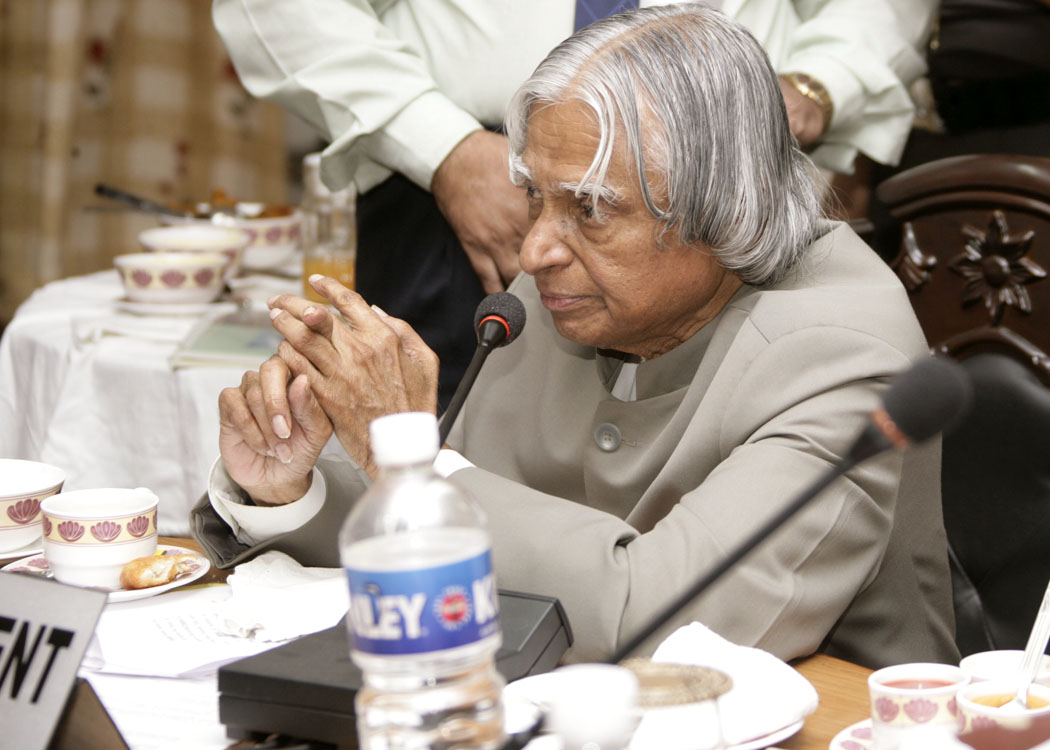

Moral Leadership
The second point came up was about the standing and excellence of the university to build moral leadership to the student. Hence, quality of research and teaching will attract students from many parts of the country, creating new environment and base for development of the Nation.
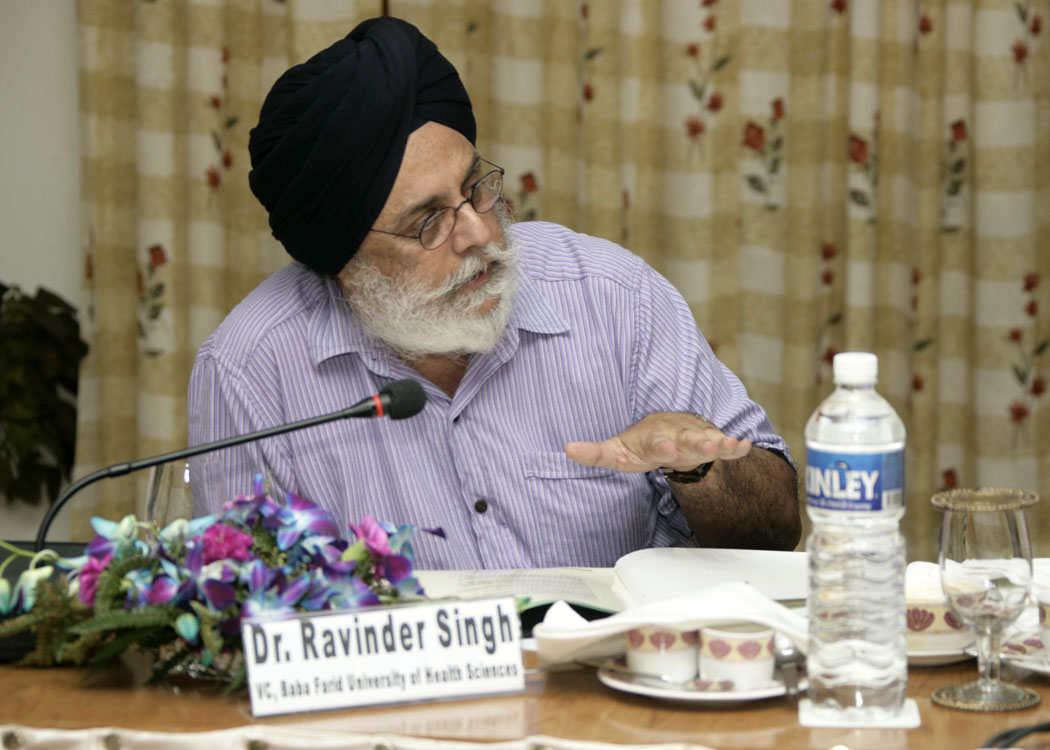

Convergence of Technologies
The information technology and communication technology have already converged leading to Information and Communication Technology (ICT). Information Technology combined with bio-technology has led to bio-informatics. Now, Nano-technology is knocking at our doors. It is the field of the future that will replace microelectronics and many fields with tremendous application potential in the areas of medicine, electronics and material science. When Nano technology and ICT meet, integrated silicon electronics, photonics are born and it can be said that material convergence will happen. With material convergence and biotechnology linked, a new science called Intelligent Bioscience will be born which would lead to a disease free, happy and more intelligent human habitat with longevity and high human capabilities. Convergence of bio-nano-info technologies can lead to the development of nano robots. Nano robots when they are injected into a patient, my expert friends say, it will diagnose and deliver the treatment exclusively in the affected area and then the nano-robot gets digested as it is a DNA based product.
Convergence of ICT, aerospace and Nano technologies will emerge and revolutionize the aerospace industry. This technological convergence will enable building of cost effective low weight, high payload, and highly reliable aerospace systems, which can be used for inter-planetary transportation.

India?s First Virtual University
I would like to mention about Virtual University system brought about by the Universities of Madras, Mumbai and Calcutta. This Virtual University system has led to the commencement of 10 joint degree, post graduate and Ph.D Programmes. I had inaugurated this programme from Rashtrapati Bhavan, New Delhi through a Virtual Tele-Education delivery system, where 15000 students participated. I took the first class for 90 minutes followed by an interaction with all the three universities. I am very happy that this movement is first of its kind in the country. I would suggest the Universities of Punjab can also consider creation of Virtual University by networking the Universities which will enable maximum utilization of the core competence of the individual university and enrich the students with quality knowledge and skills.
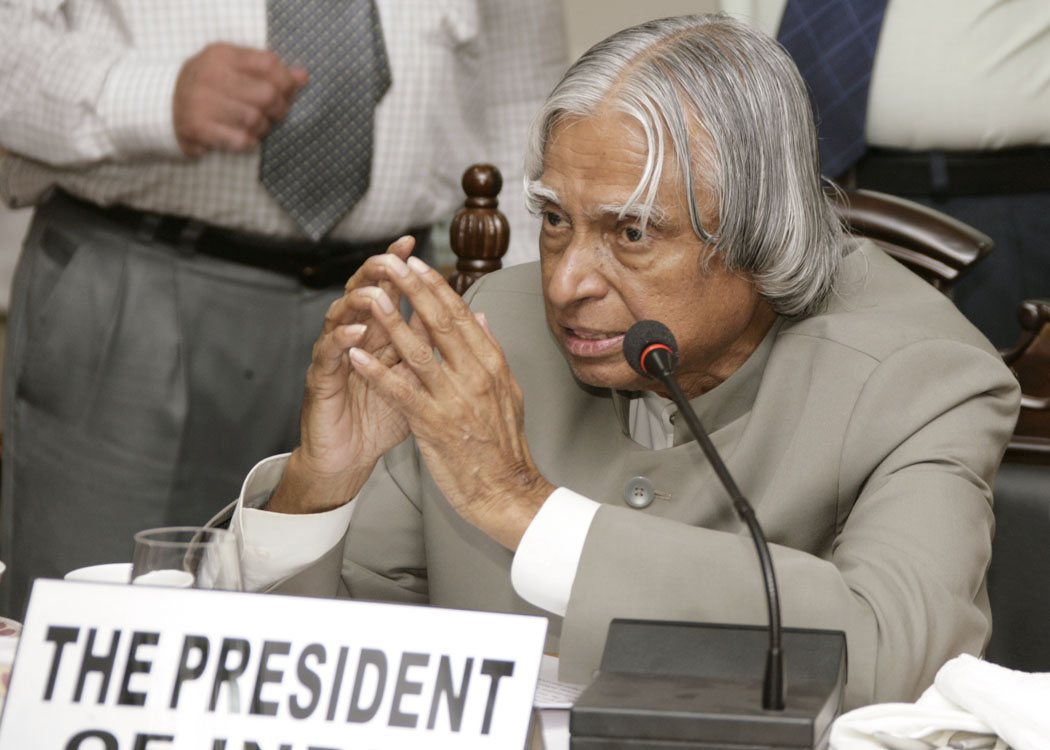

Partner to Developed India - Missions
Transformation of India into a developed nation will need integrated action in the following areas namely: Agriculture and Food Processing, Education and Health care, Information and Communication Technology, Infrastructure and self-reliance in critical technologies. The key elements which require immediate attention for national development are Interlinking of rivers and Providing Urban facilities in Rural Areas (PURA). The core competence available at various universities will empower you for contributing in these national missions.
Interlinking of rivers is essential for flood and drought control, for availability of drinking water to all regions, for goods navigation and transportation for increased power generation, cultivation land and environmental ecology. This mission will also provide employment opportunities to the rural population. Remote sensing to survey and evolve optimum water routes, environmental mapping and afforestation requirements and Ground Information System (GIS) from satellite constellation. Above all, the interlinking will lead to enhancement of environment and national connectivity. It is an interdisciplinary task involving many specialists from various fields of Science and Technology. The universities should actively involve in the interlinking of rivers task force and be partners of this mega mission.

Mission for Science Congress: Establishment of 100 PURA Clusters
During my address to the 93rd Indian Science Congress at Hyderabad, I had suggested that a decision can be taken to allot Rs. 500 crore to develop 100 PURA Clusters and its components (comprising of 20 to 30 villages in the vicinity of the institution/college) by the 100 selected educational institutions or colleges spread across the country. Rs. 5 crore each will be utilized for developing infrastructure in rural complexes such electronic and knowledge connectivity to 100 clusters leading to setting up of village knowledge centres; agri-clinics; tele-education and tele-medicine centres; and other employment oriented schemes such as bio-gas plants; water treatment plants (brackish to potable water); mobile clinic with tele-medicine facility; initiating Jatropha farming to extraction plants; bio-fuel esterification plants; cold storage; consumer product development; vocational training centres and setting up of business centres by the entrepreneurs for national and international marketing of the products from these rural enterprises. Action should be taken by the colleges in consultation with local people who are the beneficiaries of this programme.
These programmes initiated by 100 educational institutions colleges with public-private partnership will provide the experience to other institutions for taking up big programmes in future in an industrial scale. This venture will build the capacities of the villagers and encourage the Indian entrepreneurs to become an active partner in this development process. These activities should not be treated as mere experiments and scientific knowledge, it is the application of science and technology to societal transformation. The winners are the academic institutions and the rural people belonging to the PURA Clusters. At the end, there should be a clear assessment whether the users (villagers) have benefited by the villagers themselves. This can be assessed by a joint team of the village members and the scientists/technologists. This will lead to the birth of the Civic Scientists. I would suggest the Vice Chancellors assembled here to get in touch with Dr. I.V. Subba Rao, General President, 93rd Indian Science Congress for getting further information on the project so that at least three or four PURAs can be created in Punjab by educational institutions located in rural areas.
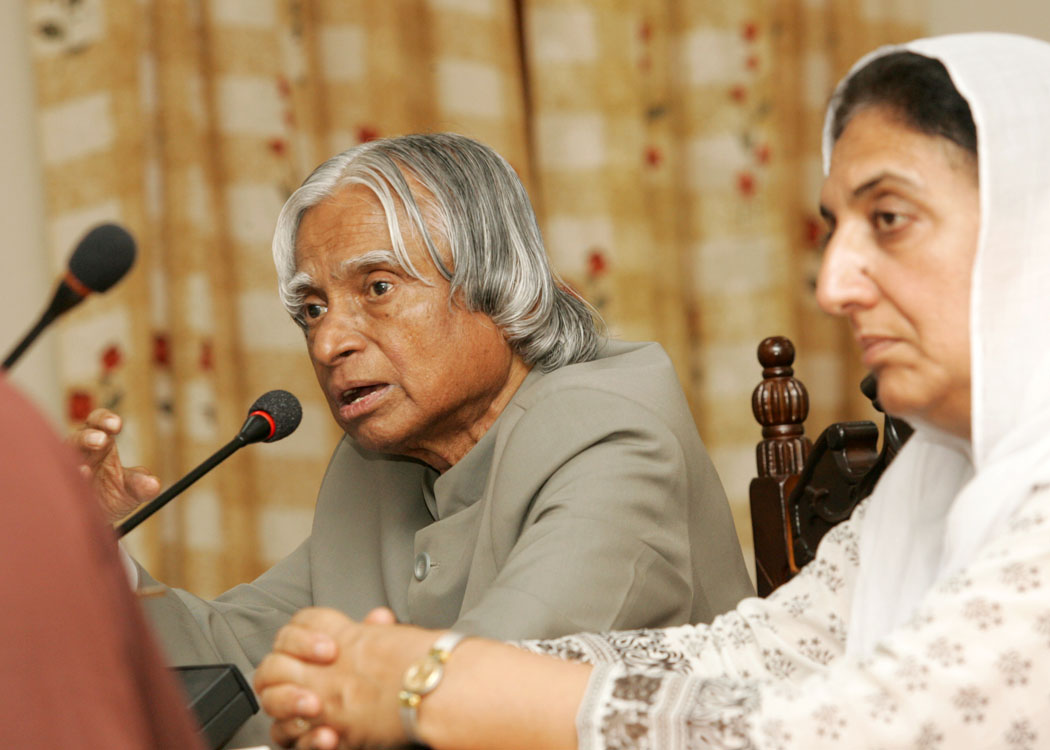

Entrepreneurship
The Universities in the country generate about 3 million graduates every year and they need employment either within and outside the state or abroad. University syllabi have to be integrated with entrepreneurship courses. At the end of the course students should get a certificate or a diploma. This will enable students qualified in the colleges, to have the confidence that they can start small enterprises in agriculture, manufacturing or service sectors based on the core competence of a particular region. Banks have to be entrepreneur friendly and should give them venture capital and support these young entrepreneurs and their creative ideas. The States can also start self-employment scheme on the lines of a scheme started by the J & K Government where a youth is provided low interest loan for self-employment projects. Universities have to play a major role in interfacing with the banks and the industries for creating entrepreneurs and enterprises. Now, I would like to talk about Global Human Resource cadre.

Global Human Resource
There is a need for quality human resource in the country in all sectors of the economy namely agriculture, manufacturing and services. Since there is a mismatch between availability and the requirement of human resource, cost of hiring is going up, which is not sustainable in the long run. We have to face this challenge and the higher education system and the technical skill education system have to gear up to generate manpower with employable skills in quantity and quality at all levels. The education system has to be relevant to present day manpower needs and be sensitive to global changes that are taking place in every sector of the economy. The syllabus require review and change periodically keeping in mind the present and future development tasks.
At present India has 540 million youth under the age of 25 which will continuously grow till 2050. Keeping this resource in mind, universities and educational systems in the State should create two cadres: (1) a global cadre of skilled youth with specific knowledge of special skills and (2) another global cadre of youth with higher education to take up research and leadership roles. These two cadres will be required not only for powering all sectors of our economy, but also to be a reservoir of knowledge for the rest of the world.
Universities, colleges and training institutions will have to work towards increasing the throughput of the higher education system from the existing 6 percent to 20 percent by 2015, 30 percent by 2020 and 50 percent by 2040. This is a mission that must be undertaken by universities and colleges in the State. At the Government level all efforts should be made to remove shackles in the growth of educational institutions by giving greater autonomy and removing controls.
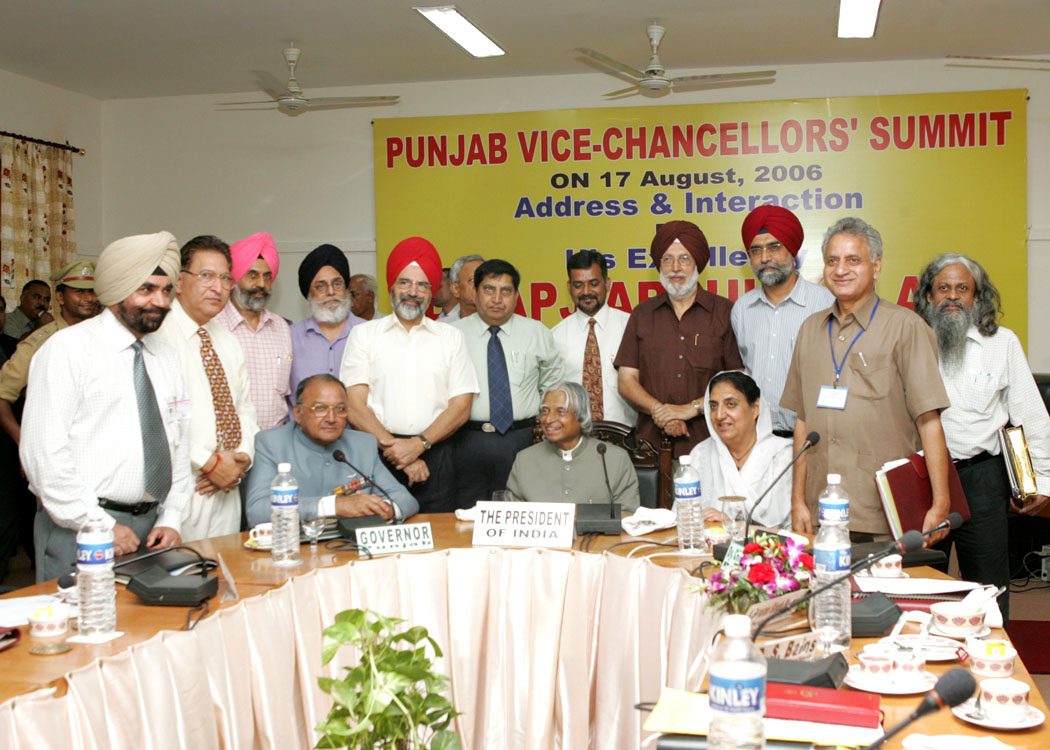

Employment in IT Sector
As per the recent NASSCOM ? McKinsey Report 2005, India has the largest talent supply for offshore IT and BPO. The IT and BPO industry will be creating over 9 million jobs by 2010 exceeding planned employment creation across all special programmes of the State and Central Governments. It will also create 6.5 million indirect and induced jobs to support offshore IT and BPO industries in 2010. This will include employment in several sectors such as construction, retail and transport.

Conclusion
I see a spirit of service amongst overseas Indians who have gone and settled in different countries from Punjab. Let me share some of the examples: an Educational Complex is coming up at Sanghol through Rana Charitable Trust, Lord Swaraj Paul has created a school of excellence in manufacturing and material sciences as a part of Punjab Technical University. Baba Bhat Singh Trust at village Padhiane in Hoshiarpur district is providing education commencing from primary school to professional courses including engineering, nursing, pharmaceutical at an affordable cost to the rural people. Another educational complex has come up at Dalwandi Sabo near Jalandhar called Yavindra College of Engineering which has been created with the funds donated by NRIs of that region. Also, Shri H.G.S. Gill, an NRI at Karodi village in Hoshiyarpur District has provided the village with a central sewerage system. Also he has equipped the schools with computers and organized computer training. There many more such initiatives. Definitely, the spirit of service of overseas Indians from Punjab is admirable. The Vice Chancellors of the Universities in Punjab and the Government may like to harness such trends of service from overseas Indians for reinforcing the existing university system for higher level of capacity building.
My best wishes to all the Vice-Chancellors of Universities in the State of Punjab success in their mission of contributing towards promotion of value based quality education to the youth.
May God bless you.
<<Back
|